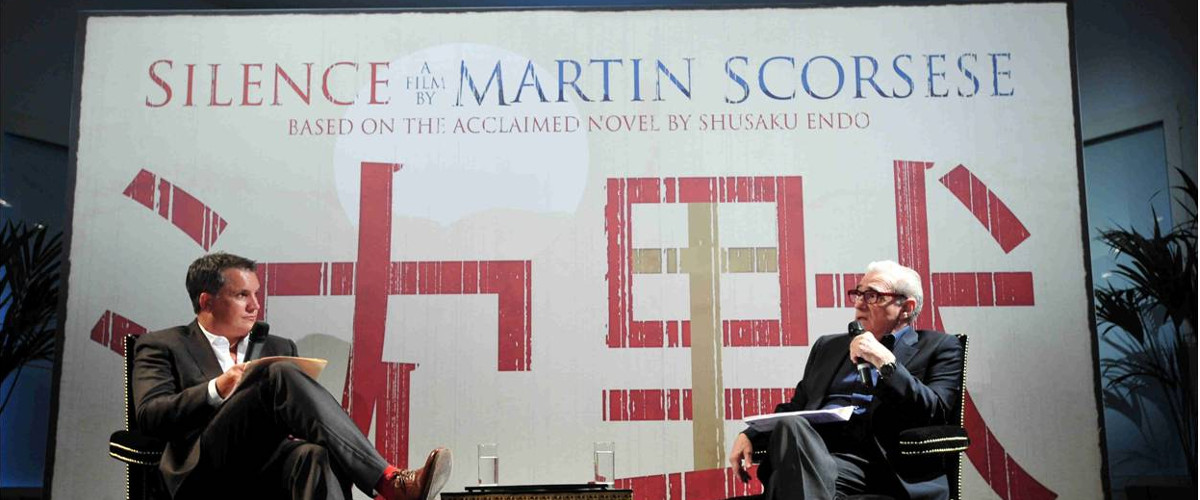Irish Jesuit Brian Mac Cuarta SJ and the staff of the Roman Jesuit Archives (Archivum Romanum Societatis Iesu – ARSI) are cooperating closely with the production team at Paramount Pictures to provide a key artefact for Silence, a film adaptation of Shūsaku Endō’s novel about Catholicism in 17th century Japan, directed by Martin Scorsese (pictured here). To date the nature of the artefact has not been divulged.
Shūsaku Endō, a Japanese novelist, published Silence in 1966, and Irish Jesuit Bill Johnston translated the novel into English. The novel chronicles the violent persecution of Christians in Japan in the late 1500s to early 1600s. The persecution saw a large number of faithful and many missionary and local priests die as martyrs, often as a result of severe torture. The protagonist in the novel is a Portuguese Jesuit missionary, Cristovão Ferreira, who is subjected to torture in an effort to make him renounce his faith. In the harrowing tale of Ferreira, Endō evokes the struggle that Catholicism and Christianity in general still face to this day in Japan. The theme of a silent God who accompanies a believer in adversity was greatly influenced by the Catholic Endō’s experience of religious discrimination in Japan, racism in France, and a debilitating bout with tuberculosis.
The adaptation of Endō’s Silence will star Liam Neeson, who also played the role of a Jesuit in The Mission. Other members of the cast include Adam Driver, Tadanobu Asano, and Spider Man star Andrew Garfield.
Filming of Silence began on January 19. Meanwhile, other Jesuit experts collaborated in pre-production research, and Kuangchi Program Service, the Jesuit production house in Taipei, will be assisting the production team with the on-location shoot in Taiwan.
Set in the late 1500s to early 1600s, Shūsaku Endō’s novel chronicles the violent persecution of Christians by Shogun (General) Hideyoshi and Shogun Tokugawa.
Silence will be released later this year. [Jesuits in Ireland]
Photo: IM Global







